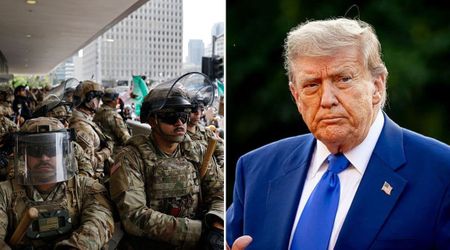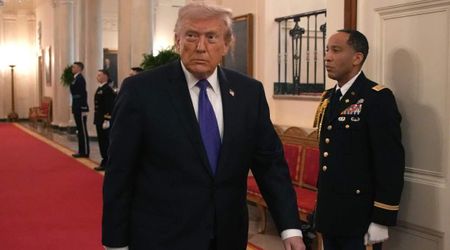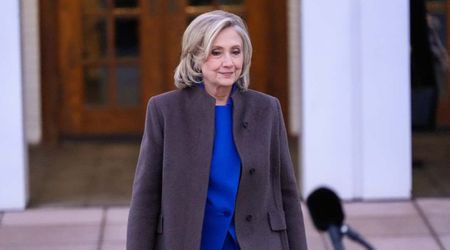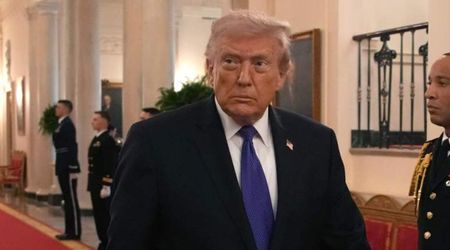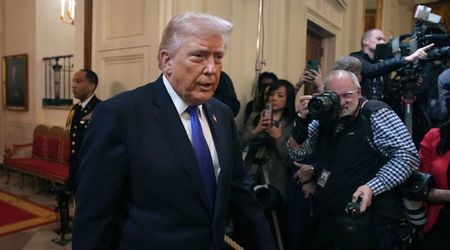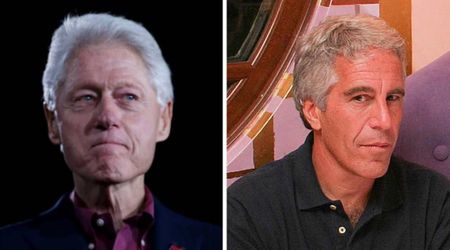'Should be on trial for treason': Defense Secy Lloyd Austin under fire over allegations of Pentagon audit 'shielding' Chinese biotech firms

WASHINGTON, DC: A recent audit of Pentagon funding for gain-of-function research outside the US has raised serious concerns that it “may have shielded” possible undisclosed collaborations with Chinese biotech firms. These firms, including at least one associated with Beijing’s military, have come under scrutiny.
On June 25, Senator Roger Marshall (R-Kansas) publicly demanded answers from Defense Secretary Lloyd Austin regarding the redactions in the audit report that concealed the identities of these firms — WuXi AppTec, Pharmaron Beijing Co, and GenScript Inc.
Senator Roger Marshall calls for transparency and accountability
In a letter obtained by the New York Post, Senator Roger Marshall stressed the need for transparency. "American taxpayers deserve transparency about the programs they are funding, and I am disappointed this OIG report does not provide that accountability," he wrote.
Marshall accused the Department of Defense (DoD) of either being unable or unwilling to be transparent about the collaborations with these biotech companies, which Congress has flagged as problematic.
Former House China Select Committee Chairman Mike Gallagher (R-Wis) introduced the Biosecure Act in January to blacklist WuXi AppTec from doing business in the US. Marshall supports listing WuXi AppTec, Pharmaron, and GenScript as “companies of concern.” However, the bill has not yet been voted on.
In February, Gallagher, China Select Committee ranking member Raja Krishnamoorthi (D-Ill.), and Senators Gary Peters (D-Mich.) and Bill Hagerty (R-Tenn.) urged Austin, Treasury Secretary Janet Yellen, and Commerce Secretary Gina Raimondo to investigate WuXi AppTec, claiming the firm was “closely affiliated” with China’s People’s Liberation Army and might have stolen US intellectual property.
Last month, the new chairman of the China panel, Rep John Moolenaar (R-Michigan), demanded a national security briefing from FBI Director Christopher Wray and Director of National Intelligence Avril Haines on GenScript.
Additionally, Senator Joni Ernst (R-Iowa), who initiated the audit by including a provision in the annual defense spending bill, pointed out another redacted WuXi AppTec grant. She suggested this grant "may be playing a role in the [Chinese] regime’s genocide of ethnic minorities."
Ernst emphasized the necessity for transparency, stating, "There is no reason for playing hide-and-seek with how and where the hard-earned money provided by taxpayers is being spent."
Research grants and concerns over offensive biological work
Between 2019 and 2020, the US Army Medical Research and Development Command allocated $6.5 million to WuXi AppTec to test antivirals in cells and animals infected with SARS-CoV-2, dengue, Ebola, and Chikungunya viruses.
The Defense Department Office of Inspector General’s audit reported that over $15.5 million in grants between 2014 and 2023 were directed to subrecipients for research related to potential enhancement of pathogens of pandemic potential.
However, the audit highlighted “significant limitations with the adequacy of data” and noted that the Pentagon “did not track funding at the level of detail necessary to determine whether the DoD provided funding to Chinese research laboratories or other foreign countries” for these gain-of-function experiments.
The Pentagon classifies such research as “offensive biological work,” which raised concerns among lawmakers. Marshall noted that this classification "raises questions" about National Institutes of Health (NIH) officials who admitted this year to funding gain-of-function experiments at the now-debarred Wuhan Institute of Virology through the grantee EcoHealth Alliance.
EcoHealth has denied that these experiments constituted gain-of-function research on bat SARS viruses, despite NIH officials and scientists testifying otherwise to Congress. EcoHealth also rejected the hypothesis that this research may have led to the Covid-19 pandemic.
Dr Richard Ebright, a molecular biologist at Rutgers University, criticized the Pentagon’s handling of the funds. He told the New York Post that the Inspector General’s report was evidence of “gross negligence” and that “it would have been much better for the DoD to have set taxpayer dollars on fire.”
Ebright argued, “The DoD used US taxpayer dollars to fund bioweapons-agents discovery and bioweapons-agents enhancement programs in China and other foreign countries. It neither placed conditions on uses of the funding, nor monitored uses of the funding, nor has records of any result or product of the funding.”
Marshall reiterated his call for a comprehensive audit of gain-of-function research, according to the outlet.
Defense Secy Lloyd Austin under fire following audit revelations
The audit's findings have sparked significant backlash on social media.
"So many people should be on trial for treason right now," one posted on X.
"And the web continues to unravel," another wrote.
"This is correct and factual," a comment read.
"Gain-of-function research can be invaluable for understanding potential pathogens better, provided it's conducted with the highest safety standards. It's important to balance scientific advancement with strict oversight," someone else offered.
"Does it need to be done in secret? Hidden from the public by admin that promised to be most transparent ever?" another asked.
So many people should be
— LusciousMuffins (@LuciousMuffins) June 26, 2024
on trial for treason right now.
https://t.co/bq72XJClHG And the web continues to unravel.
— Rubybegonia (@Rubybegonia201) June 26, 2024
Gain-of-function research can be invaluable for understanding potential pathogens better, provided it's conducted with the highest safety standards. It's important to balance scientific advancement with strict oversight.
— FactFusion (@factfusion24) June 26, 2024
Does it need to be done in secret? Hidden from the public by admin that promised to be most transparent ever?
— Kevin E (@kevinell31) June 26, 2024
This article contains remarks made on the Internet by individual people and organizations. MEAWW cannot confirm them independently and does not support claims or opinions being made online.

